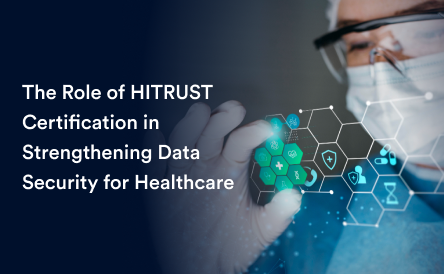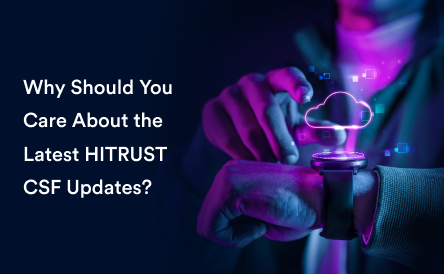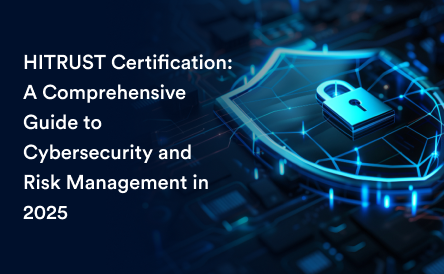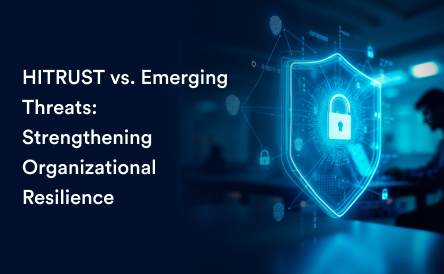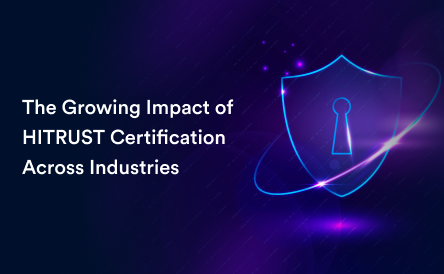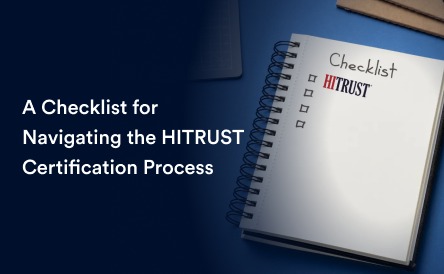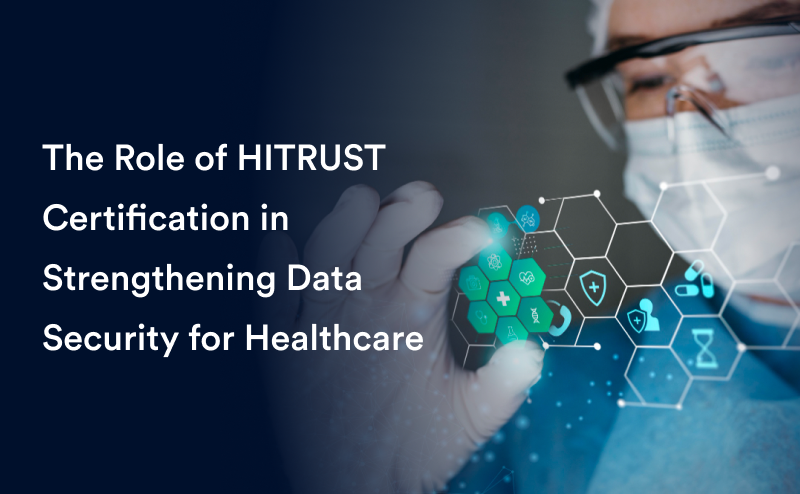
In the healthcare industry, data security is more than just a technical requirement — it’s a matter of trust and patient safety. With the rise of electronic health records (EHRs), telemedicine, and connected medical devices, healthcare organizations are managing unprecedented amounts of sensitive patient information. At the same time, they face mounting threats from cyberattacks, ransomware, and data breaches.
To navigate these challenges and protect sensitive information, healthcare organizations are turning to HITRUST certification as a reliable standard for strengthening their data security and demonstrating compliance with regulatory requirements.
This blog explores the critical role of HITRUST certification in securing healthcare data, mitigating risks, and fostering trust in an increasingly connected world.
The Importance of Data Security in Healthcare
Healthcare organizations handle vast amounts of protected health information (PHI), which includes medical records, personal details, and financial data. Safeguarding this information is essential for:
- Patient Privacy: Patients trust healthcare providers to keep their information confidential.
- Regulatory Compliance: Laws like HIPAA (Health Insurance Portability and Accountability Act) mandate strict data security measures.
- Operational Continuity: Cyberattacks can disrupt care delivery, putting patient lives at risk.
Despite these priorities, the healthcare sector remains one of the most targeted industries for cyberattacks. A lack of standardized, rigorous security practices leaves many organizations vulnerable. This is where HITRUST certification steps in.
What is HITRUST Certification?
HITRUST (Health Information Trust Alliance) developed the Common Security Framework (CSF) to provide organizations with a certifiable, risk-based approach to data protection. The framework integrates and harmonizes multiple standards, including:
- HIPAA Security and Privacy Rules
- ISO 27001
- NIST Cybersecurity Framework
- PCI DSS (Payment Card Industry Data Security Standard)
- GDPR (General Data Protection Regulation)
By achieving HITRUST certification, healthcare organizations demonstrate their commitment to meeting the highest standards of data security, privacy, and compliance.
How HITRUST Certification Strengthens Healthcare Data Security
1. Comprehensive Compliance Management
Healthcare organizations often juggle multiple regulatory requirements, including HIPAA, GDPR, and state-specific privacy laws. HITRUST certification simplifies compliance by unifying these standards into a single framework.
Instead of managing separate audits and assessments for each regulation, HITRUST provides a streamlined approach that saves time, reduces complexity, and ensures comprehensive coverage.
2. Proactive Risk Management
HITRUST takes a risk-based approach to data security, tailoring its requirements to the unique risks faced by each organization. This approach encourages healthcare providers to:
- Assess their vulnerabilities.
- Prioritize critical assets and systems.
- Implement controls that effectively mitigate risks.
By focusing on specific threats, HITRUST certification helps healthcare organizations proactively address risks before they escalate into breaches or compliance violations.
3. Mitigating Cybersecurity Threats
The healthcare sector faces a growing number of cyber threats, including:
- Ransomware attacks that lock critical systems and demand payment for release.
- Data breaches exposing sensitive PHI to unauthorized individuals.
- Insider threats from employees mishandling or misusing data.
HITRUST certification requires organizations to implement advanced security controls, such as:
- Encryption of data at rest and in transit.
- Multi-factor authentication to secure access.
- Real-time monitoring and logging of system activity.
These measures significantly reduce the likelihood of cyber incidents and improve an organization’s ability to detect and respond to threats.
4. Building Trust with Patients and Partners
In healthcare, trust is a cornerstone of patient-provider relationships. Achieving HITRUST certification demonstrates that an organization is committed to safeguarding patient information.
For healthcare providers, this certification is also a competitive advantage when working with partners, vendors, and third-party payers who demand robust data security measures. It signals that the organization adheres to industry-leading standards, fostering confidence among stakeholders.
5. Enabling Vendor and Third-Party Risk Management
Healthcare providers often rely on vendors for critical services, from EHR platforms to cloud storage solutions. These third-party relationships introduce additional risks, as a vendor’s security lapse can compromise the provider’s data.
HITRUST certification plays a key role in third-party risk management by:
- Providing a consistent standard for evaluating vendor security.
- Allowing organizations to require HITRUST certification from their vendors.
- Reducing the need for redundant audits and assessments.
By extending HITRUST certification to their supply chain, healthcare organizations can ensure consistent security practices across all partners.
Why HITRUST Certification is Essential for Healthcare
Enhanced Protection for Patient Data
HITRUST certification goes beyond basic compliance requirements, focusing on practical, actionable controls that enhance data security. This proactive approach minimizes the risks of breaches and protects patient privacy.
Demonstrating Regulatory Compliance
Healthcare organizations are frequently audited for compliance with HIPAA and other regulations. HITRUST certification provides documented proof of compliance, making it easier to satisfy auditors and regulators.
Supporting Continuous Improvement
HITRUST certification requires ongoing assessments to maintain certification, fostering a culture of continuous improvement. Organizations are encouraged to regularly update their security measures in response to evolving threats and regulations.
Getting Started with HITRUST Certification in Healthcare
Achieving HITRUST certification may seem daunting, but with the right approach, it’s achievable and highly rewarding. Here’s how to get started:
Step 1: Conduct a Readiness Assessment
Evaluate your organization’s current security posture against HITRUST CSF requirements. Identify gaps and areas for improvement.
Step 2: Develop a Remediation Plan
Address deficiencies in your security controls and align them with HITRUST standards.
Step 3: Engage a HITRUST-Certified Assessor
Work with an approved assessor to prepare for the formal certification process.
Step 4: Submit for Certification
Once ready, undergo a validated assessment and submit your results to HITRUST for review.
Conclusion
In today’s healthcare landscape, securing sensitive data is non-negotiable. HITRUST certification provides a proven framework for protecting patient information, reducing risks, and meeting regulatory requirements. By achieving certification, healthcare organizations can demonstrate their commitment to data security, build trust with stakeholders, and stay ahead of evolving threats.
Ready to take the first step toward HITRUST certification? Contact Praveen Kumar at Finstein for expert guidance:
Email: Praveen@Finstein.ai
Phone: +91 99400 16037

